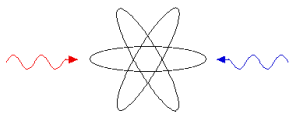Said Dorothy, the would-be Behavioral Scientist, to The Great Oz, “Give me a way to Control my Variables, so I can be Truly Scientific like the Physicists, for We All Know that is the reason that it is so hard to be scientific when it comes to people.” The Great Oz smiled a small smile and said, in a way Dorothy had never heard before, “No.”

Having gotten her attention, he elaborated. “Back where I come from (and you do too), there are Scientists who are Truly Scientific and do experiments no better than you. But, they have one thing you have not got: a careful, precise, systematic articulation of the subject matter of their Science, which allows them to state the possible facts, in as much detail as they need, without ruling out possible facts in advance. Actually, they are no better than you at Controlling Variables. The real difference is that their systematic elaboration of their fundamental concepts allows them to understand what their experiments tell them, and what things are not empirical at all.”
What am I getting at here?
The point of the vignette is that psychology, and all the social “sciences,” have focused on the aspect of the physical sciences that is the easiest to imitate and proceduralize, but which is not the central difference between science and non-science, and not the central difference between psychology and physics. Certainly science includes the commitment to the importance of empirical results, and to empirical investigation to settle whether the real world conforms to what a theory says. Controlling variables is part of the machinery of empirical investigation. Careful investigation of the phenomenon under study, and the commitment to finding out the facts, rather than what someone claims the facts are, are sine qua nons of science.
However, the exclusive focus on empiricism has resulted in the oversight of a more fundamental, aspect. In all the fields accepted as straightforward examples of science, cases in which it is agreed that if ever there were a case of science, this is one, the scientists in that field share something absolutely crucial to their endeavor: they all agree on what their subject matter is. They agree on the central concepts of that subject matter, and they can articulate precisely the concepts of the field and the logical relationships between them.
Two physicists, for example, might disagree, and have theories about, the trajectory of an electron under various forces. But while they are disagreeing about which trajectory will be followed, they agree on the concepts of electron, velocity, force, trajectory, and there are carefully formulated statements of the relationships between them, such as the laws of motion, etc. Each physicist knows what another physicist means by those terms, and the concepts are well-defined and precisely articulated. Further, the possible trajectories of the electron can be stated, and none are ruled out a-priori. With this careful, precise, systematic articulation of their subject matter, physicists are in a position to carry out the practices of physics, which include those involved in doing experiments and interpreting results. With precise formulations of their concepts, they can do an experiment, with all the variables carefully controlled, to see what actually happens to the electron.

In contrast, two psychologists attempting to disagree about what a person will do in a set of circumstances, are in a position utterly unlike that of the physicists. Their most fundamental concept, that of a person, has no precise definition or other formulation; the equally fundamental concept, behavior, has been and continues to be the subject of rhetoric and vitriol, but there is no precise statement of what that thing, behavior is. There is no systematic and rigorous articulation of the concepts of person and behavior and their interrelationships, and in fact no agreement at all as to what behavior is. For example, does âbehaviorâ mean just the physical movements involved in doing something? Do people choose what they do, or are âchoiceâ and âwillâ obsolete, pre-scientific concepts? Is love nothing more than a matter of pheromones and neurotransmitters? These bedrock questions â these fundamental concepts — are the very foundation of any attempt at a science of human behavior, and lack of such a formulation makes the enterprise, literally, impossible.
Where would physics be if, when one said, “The electron will proceed at this rate along the following trajectory, the other replied, “Wait a minute! There is really no such thing as an electron, and further this business of ’trajectory’ is really a theoretical construct with little empirical validation — actually we all know that the only thing that really exists is sets of points.” And yet, that is exactly the position of a psychologist who says, “A person in these circumstances will have the following characteristics and exhibit the following types of behaviors.”
Descriptive Psychology is designed to address this need.
Descriptive Psychology is a precise, systematic, comprehensive formulation of the concepts of person, behavior, language, and the real world, which we, as behavioral scientists, can use in addressing the subject matter of behavioral science: persons behaving in the world. It is a rigorous formulation of those bedrock concepts, and their logical relationships, needed to do science in the human realm. Further, while being precise, careful, and systematic — i.e., scientific in the most fundamental sense — it does not do violence to the essentially human aspects of the field. It provides the means to discuss specifically human issues precisely without trying to reduce them to biology, biochemistry, or physics. It is not an exaggeration to say that there has never been such formulation.
At the same time, any and all results from those fields that are relevant to the science of people and what the they do has an explicit, articulated, technically sound place. No possible facts, theories, etc., are ruled out in advance. So, for example, when new results of PET scans during reasoning tasks are discovered, we have the framework for stating both the physiological facts and the behavioral facts, in full detail, a capability psychologists have never had.
Descriptive Psychology began with the work of one man, Dr. Peter G. Ossorio of the University of Colorado in the early 1960s. Since then it has produced a substantial volume of analytical and applied work, including 8 volumes of Advances in Descriptive Psychology and many publications in the professional journals of a number of fields. The range of fields in which it has yielded valuable results is extraordinary, including clinical psychology, computer science, law, and theology.
Areas in which very different, sometimes startlingly different, results have been produced include clinical psychology, social psychology, organizations and management, software engineering, artificial intelligence, law, and theology. Two of Ossorioâs books, Place and âWhat Actually Happens,â are unique treatments of some of the most fundamental philosphical concepts, including metaphysics, ontology, epistemology. Several computer systems based on the techniques and formulations of Descriptive Psychology have been produced, including practical information retrieval systems whose performance exceeds that of any keyword retrieval system extant and one of the two first expert systems ever produced, the MENTOR project at AT&T Bell Laboratories. Most recently, it is the basis of patented advance in search technology and is the basis of a high-tech document categorization company in San Francisco.